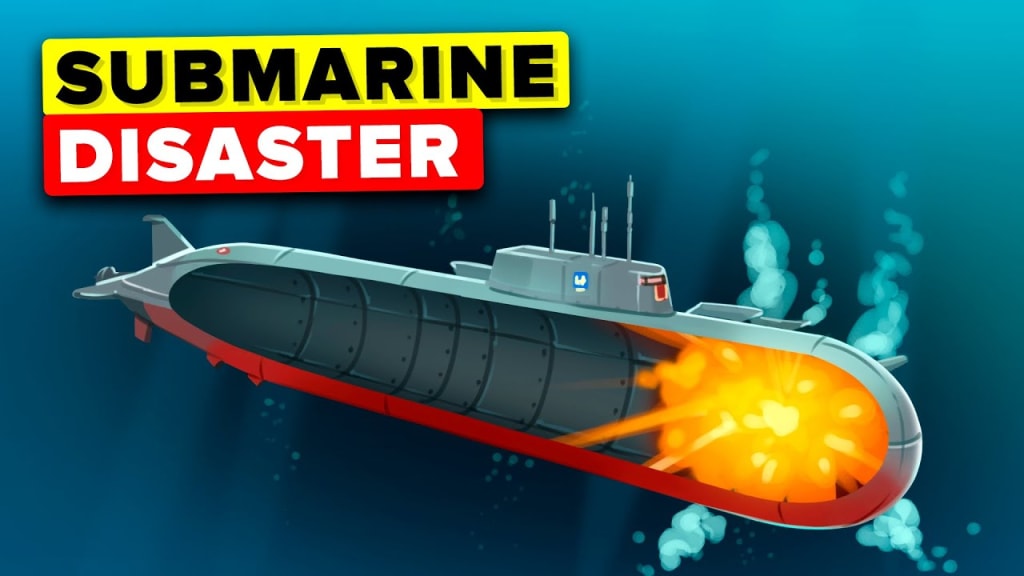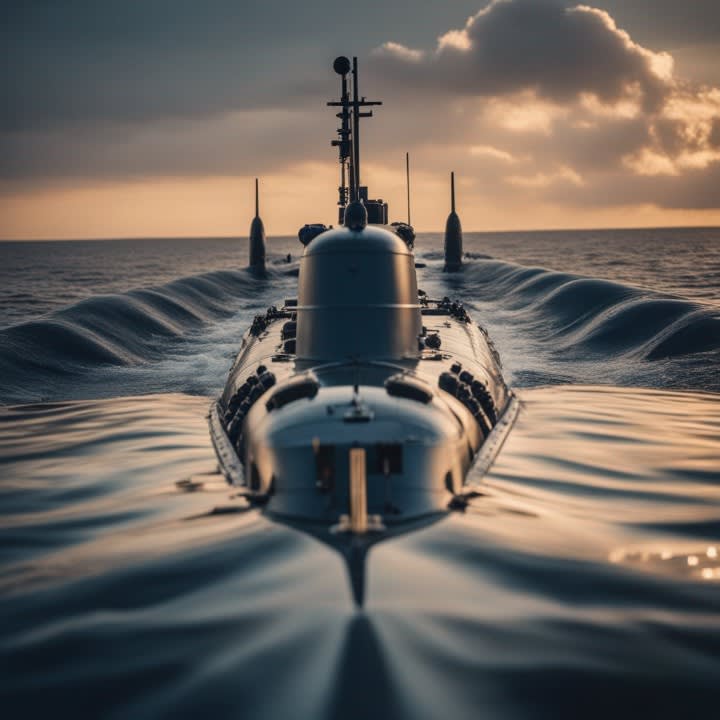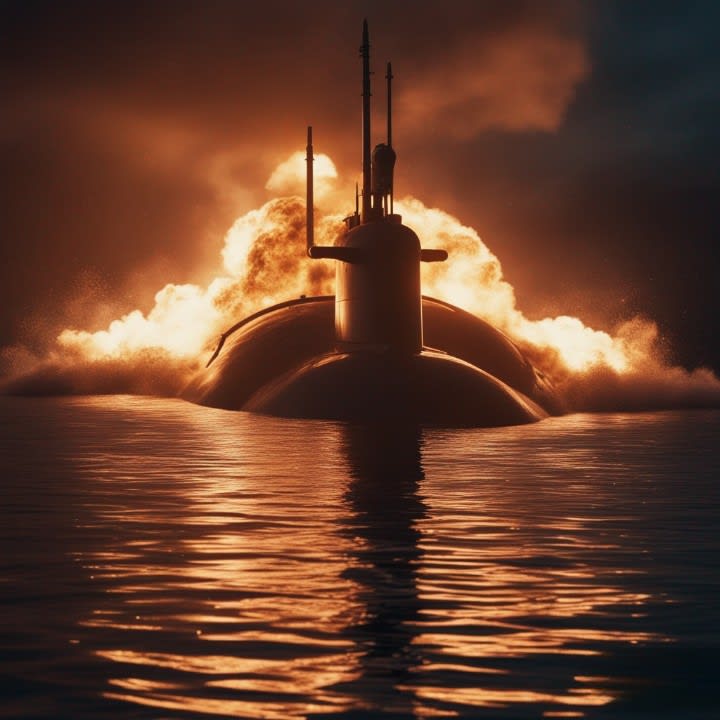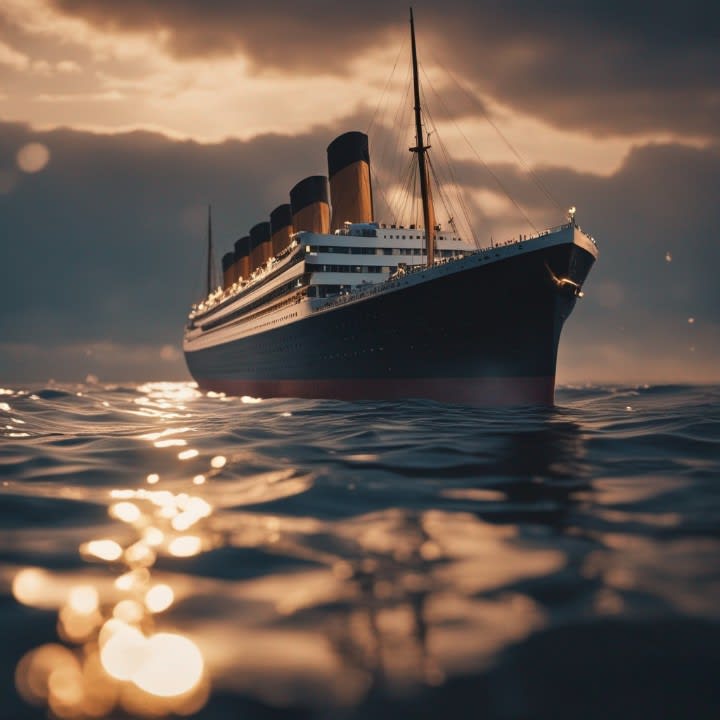How did the Kursk submarine disaster happen, and why was it the Russian Navy’s biggest mistake?
Imagine being trapped in a sinking submarine, with no hope of rescue and only death waiting for you. This was the nightmare scenario that the crew of the Kursk submarine faced, as they endured one disaster after another in the depths of the Barents Sea. In today’s thrilling new narrative, we will reveal the tragic story of the Kursk submarine, and how the Russian Navy failed to save their men from a horrific fate. Don’t miss this incredible story that will show you the true horror of the Kursk submarine disaster! 🌊💥💀

The Sinking of the Kursk: Tragedy and Incompetence in Putin's Russia
On August 12, 2000, the nuclear submarine Kursk sank during naval exercises in the Barents Sea. Over 9 agonizing days, 118 Russian sailors fought for survival at the bottom of the ocean while their leaders mismanaged the crisis with stunning callousness and deceit. This preventable tragedy marked one of the biggest challenges of Putin's early presidency.

The Pride of the Fleet
The Kursk was the pride of Russia's Northern Fleet. At 500 feet long, the massive Oscar-II class submarine had staterooms, a gymnasium, and 24 lethal Shipwreck missiles. Though budget cuts left it underemployed after the Cold War, the Kursk's crew was the fleet's finest.
In August 2000, they prepared for the Summer-X naval exercises, the largest maneuvers in years. On August 10, the Kursk set sail to simulate attacks on other Russian ships with dummy weapons. For two days, the war games proceeded smoothly.

Explosion and Silence
Shortly after midnight on August 12, an American submarine monitoring the exercises detected an explosion aboard the Kursk. At 11:28 AM, sensors registered a second, catastrophic blast.
This explosion, equivalent to 250 tons of TNT, was heard and felt by ships and submarines across the area. The Kursk had suffered a mortal blow.
Immediately, Russian commanders knew a disaster had occurred. But they suppressed concerns and continued the exercises, assuming the Kursk's silence resulted from communications failures.
Inexplicably, it was not until 16 hours after the explosions that Russia organized a search and rescue operation. The government refused assistance offered by Britain, Norway and other countries who quickly learned of the unfolding tragedy.

Lies, Incompetence and Botched Rescues
On August 13, Russia's Navy Commander stated: "There are signs of a collision. The chances for a positive outcome are not very high."
In truth, the Navy had no idea what befell the Kursk. But for days, military leaders and government officials fed the public lies that the situation was under control and the crew was alive.
Meanwhile, the families of the trapped sailors heard only terrifying rumors. The truth was actively suppressed.
Multiple Russian attempts to reach the crippled submarine failed amid worsening weather. Their equipment and training proved inadequate for the task. Yet Russia continued refusing foreign help for over a week.
Trapped Sailors Perish
Not until August 21 did Putin's government finally admit the situation was hopeless. Norwegian divers opened the hatch and found the unthinkable - all 118 sailors lifeless inside.
Most had died instantly in the initial explosions. But 23 men miraculously reached a rear compartment and left heartbreaking notes. These survivors lasted only a few more hours before oxygen ran out on August 14.
One sailor wrote: "It seems like there are no chances, 10–20%. Let's hope that at least someone will read this. Kolesnikov."
Tragedy and Consequences
After callously dragging its feet for over a week, Russia's shocking incompetence could no longer be denied. The Kursk disaster marked Putin's first major political crisis.
Seeking to avoid responsibility, naval commanders had peddled false theories that a collision with a NATO submarine caused the Kursk's demise. Putin punished these military leaders for the deceit and mismanagement.
However, Russia's reputation suffered enormous damage. The Kursk debacle proved its Navy had decayed badly since the Cold War, despite still possessing fearsome weapons.
In the disaster's sad aftermath, wild conspiracy theories arose to explain the Kursk's loss, from terrorism to accidental torpedo detonations. With Russian leaders thoroughly discredited, the true cause was debated endlessly.

Echoes of the Titanic
The Kursk tragedy evoked the 1912 sinking of the Titanic. In both cases, incompetence and arrogance condemned hundreds to a terrifying demise.
Like the Titanic, the Kursk was considered unsinkable. And in both cases, leaders allowed false pride to override duty and morality when crisis struck.
Later investigations revealed negligence and lapsed training doomed the Kursk long before her final voyage. Russia's corrupt military system precipitated the disaster, then failed utterly in response.
But above all else, the Kursk horror represented men facing the most primordial of human terrors - being trapped in a sinking ship. Through outrageous lies, Russian leaders betrayed the crew and compounded the tragedy.

Scar on the Russian Psyche
Two decades later, the loss of the Kursk still scars Russia's national psyche. More than a military disaster, the tragedy revealed callousness at the highest levels of government when the Cold War system collapsed.
Along with the 118 who perished, the last pretense that Russia remained a great power sank with the Kursk in August 2000. The tragedy marked a nation diminished; its people betrayed by hubris.
For Putin, the crisis created an early credibility gap with the Russian public that has only widened since. To many, the Kursk demonstrated that ordinary sailors would always be sacrificed to preserve the pride and power of their leaders, whether authoritarian or democratic.
The sailors of the Kursk remain entombed in their steel coffin under the waves but echoes of their agony still resound through Russian society. More than a sunken vessel, the Kursk became a tragedy that defined an era and changed a nation's psyche forever.
📝 SOURCES
Disclaimer: Some images were generated with Leonardo AI
About the Creator
Reader insights
Outstanding
Excellent work. Looking forward to reading more!
Top insights
Easy to read and follow
Well-structured & engaging content
Expert insights and opinions
Arguments were carefully researched and presented
On-point and relevant
Writing reflected the title & theme






Comments
There are no comments for this story
Be the first to respond and start the conversation.